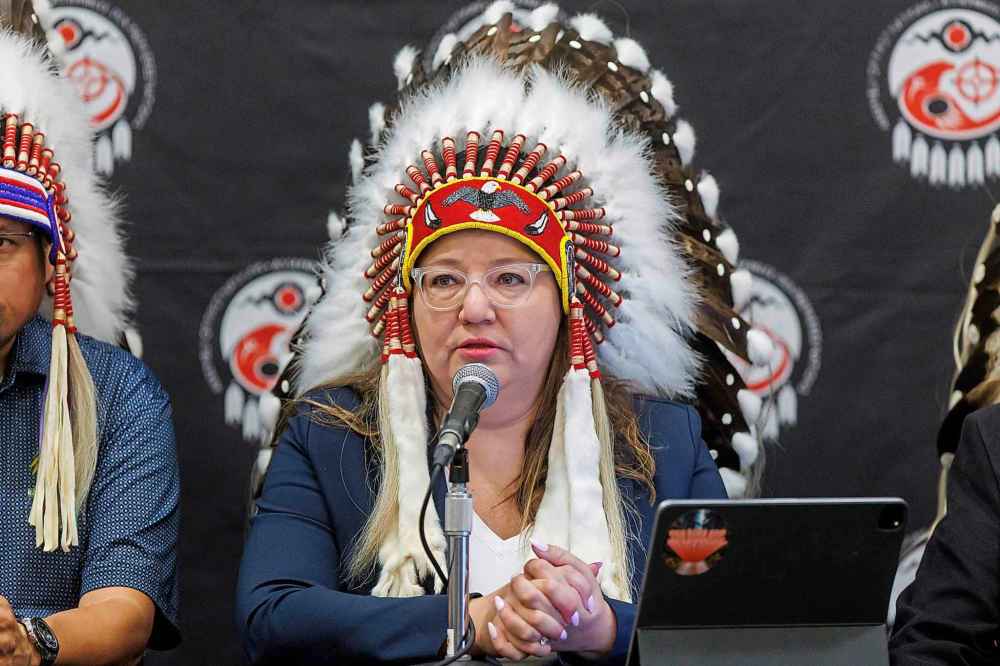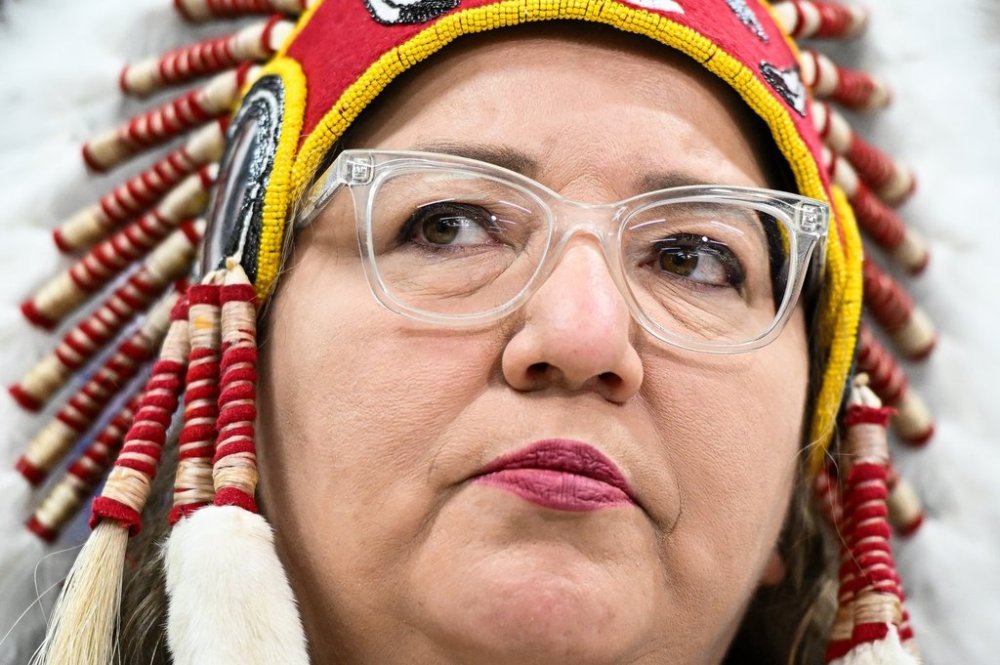Assembly of First Nations to lay out budget priorities during general assembly
Advertisement
Read this article for free:
or
Already have an account? Log in here »
To continue reading, please subscribe:
Monthly Digital Subscription
$0 for the first 4 weeks*
- Enjoy unlimited reading on winnipegfreepress.com
- Read the E-Edition, our digital replica newspaper
- Access News Break, our award-winning app
- Play interactive puzzles
*No charge for 4 weeks then price increases to the regular rate of $19.00 plus GST every four weeks. Offer available to new and qualified returning subscribers only. Cancel any time.
Monthly Digital Subscription
$4.75/week*
- Enjoy unlimited reading on winnipegfreepress.com
- Read the E-Edition, our digital replica newspaper
- Access News Break, our award-winning app
- Play interactive puzzles
*Billed as $19 plus GST every four weeks. Cancel any time.
To continue reading, please subscribe:
Add Free Press access to your Brandon Sun subscription for only an additional
$1 for the first 4 weeks*
*Your next subscription payment will increase by $1.00 and you will be charged $16.99 plus GST for four weeks. After four weeks, your payment will increase to $23.99 plus GST every four weeks.
Read unlimited articles for free today:
or
Already have an account? Log in here »
WINNIPEG – The federal government’s major projects legislation, closing the infrastructure gap on First Nations, and federal budget expectations are expected to be discussed at the annual meeting of the Assembly of First Nations this week in Winnipeg.
National Chief Cindy Woodhouse Nepinak says the federal government’s budget, expected in October, is an opportunity for Ottawa to commit to closing the infrastructure gap and addressing mistrust from its major projects legislation.
“Federal budget making must advance reconciliation and Canada’s international obligations to respect our rights to self-determination,” Woodhouse Nepinak told reporters Tuesday.

The meeting runs Wednesday through Friday.
The assembly recently put forth pre-budget submissions outlining priority areas for the more than 600 First Nations it represents. They include a recommendation that Ottawa provide $800 million over the next two years to support a First Nations review of national interest projects.
Woodhouse Nepinak said the assembly’s proposed funds could also go toward supporting a First Nations-led procurement authority that the organization has advocated for.
Federal departments and agencies are required to ensure a minimum five per cent of total contracts are held by Indigenous businesses, but the federal government has come under fire for recently awarding contracts to businesses accused of posing as Indigenous-owned.
Prime Minister Mark Carney’s government has committed $40 million over two years to increase the capacity of Indigenous Peoples to engage early and consistently on major projects, something Woodhouse Nepinak said falls short.
“Their limit is insufficient and will lead to conflicts,” she said.
The government’s major projects office, to be headquartered in Calgary, is to set up an Indigenous Advisory Council, with its membership to be confirmed next month.
The meeting in Winnipeg marks the first time leaders from First Nations across Canada will gather to discuss Ottawa’s legislation to fast-track major projects.
The legislation aims to shore up the Canadian economy in the wake of U.S. President Donald Trump’s tariff regime, but it has seen strong opposition from some First Nations leaders and community members who fear it infringes on their inherent rights.
The assembly is expected to be handed a formal mandate to respond to governments on the issue on behalf of First Nations.
One draft resolution calls for First Nations infrastructure projects to be included in the national push. Another urges amendments to the legislation on language around free, prior and informed consent and joint decision-making authority with First Nations governments.

“Nothing in the act makes First Nations input binding. This framework risks overriding our jurisdiction on our lands, waters and resources,” said Fabian Head, a vice-chief of the Federation of Sovereign Indigenous Nations in Saskatchewan.
“Let us be clear that the critical minerals and other resources driving the Canadian economy are being extracted from our treaty and traditional territories.”
Closing the gap on infrastructure in First Nations communities is heavily emphasized in the assembly’s pre-budget submissions.
“First Nations infrastructure priorities are matters of national interest and priority. These needs cannot be addressed by only trickle-down economics,” said Woodhouse Nepinak.
The organization is calling for capital investments over 10 years to close Canada’s $360-billion First Nations infrastructure gap on reserve reflecting the need for education facilities, schools, roads and housing.
Other areas of priority in the assembly’s pre-budget submissions include: $700 million to support First Nations-led mental health strategies, and an investment in First Nations education, training and languages ahead of the 10-year anniversary of the release of the Truth and Reconciliation Commission’s final report.
This report by The Canadian Press was first published Sept. 2, 2025.
— With files from Alessia Passafiume in Ottawa



